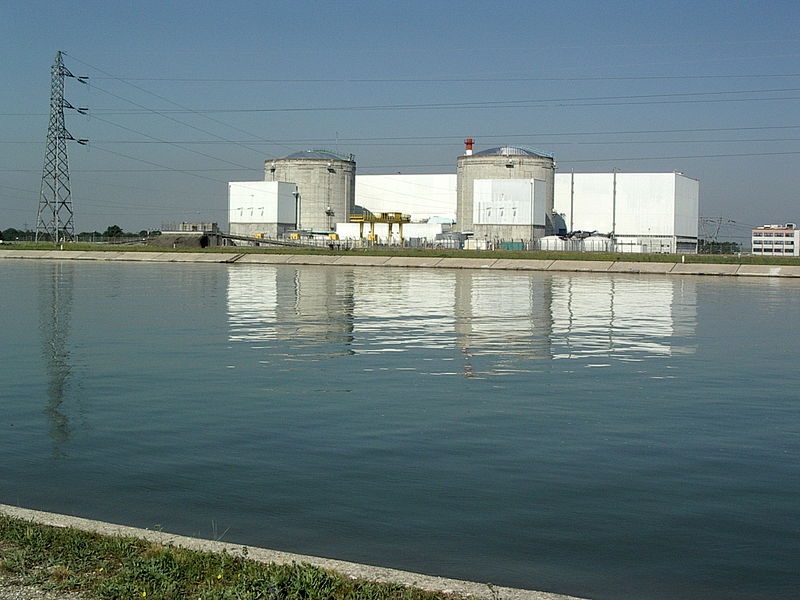A week ago, French environmental activists led by Greenpeace broke into the oldest nuclear power plant in France and occupied parts of the plant. The plant is located near Fessenheim which is on the border between France and Germany in the Alsace region. The plant has been operating for thirty seven years, seven years beyond the original licensed lifespan of the plant. This plant has had a series of nuclear and mechanical accidents, and is located on a known geological fault. Activists claim that the French plant near Fessenheim is an attractive target for terrorists or other nations hostile to France.
The German government has been pressuring the French to close the Fessenheim plant. Germany has decided to eliminate all nuclear power which has been supplying about thirty percent of Germany's power needs. They recently published a report about possible threats to German nuclear power plants from earthquakes and have called for accelerating the dismantling of Germany's fleet of nuclear power plants.
France has around sixty operating nuclear power plant. This tally does not include four "non-civil or military reactors." These reactors continue to be operated because the French government says that they are too expensive to turn off. The dismantling costs would be much higher than the cost of continued operation. These four reactors are breeder reactors that produce plutonium at the rate of about seven tons a year. While plutonium can be used for reactors fuel, the output of these reactors can also be used to produce nuclear weapons. France already has over two hundred tons of plutonium which could be turned into more than twenty five thousand nuclear warheads. Since it is estimated that the explosion of a hundred nuclear warheads could cause nuclear winter and end human civilization, it seems that France has much more plutonium stockpiled than it would ever need for nuclear weapons.
A recent British report on French use of nuclear power concludes that France cannot afford to turn off her nuclear reactors. It is estimated that replacement of nuclear power generation in France would cost more than four hundred billion dollars. On the other hand, the report points out that continuing to operate France's aging reactor fleet past their design lifetimes of thirty years will also be expensive and risky. Even decommissioning France's nuclear power reactors over an extended time period would still cost over three hundred and sixty billion dollars.
France currently gets about eighty percent of her electrical power from nuclear power plants. Electricity from nuclear power reactors in France is seriously underpriced because of a lot of subsidies granted to the nuclear industry by the French government. Uranium mining, nuclear fuel fabrication, nuclear weapons development, reactor construction, fuel reprocessing and waste disposal are all subsidized. If non-nuclear power sources are desired for any growth is baseload power generation, the cost will go up because it will not enjoy the price support of nuclear subsidies. This, along with conservation, will tend to suppress growth in baseload power needs. If the government subsidies for nuclear power ever disappear, the cost of electricity will inevitably rise which could depress baseload power use.
France is facing increasing power generation costs whatever they decide to do. Continuing to operate the aging nuclear reactor fleet will cost hundreds of billions of dollars but decommissioning it will cost more. The fact that France wants to continue to export nuclear technology further complicates the picture.
Fessenheim nuclear plant:
